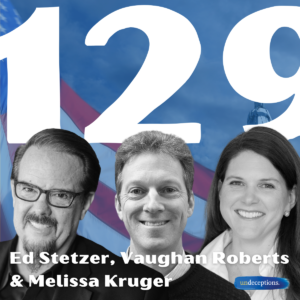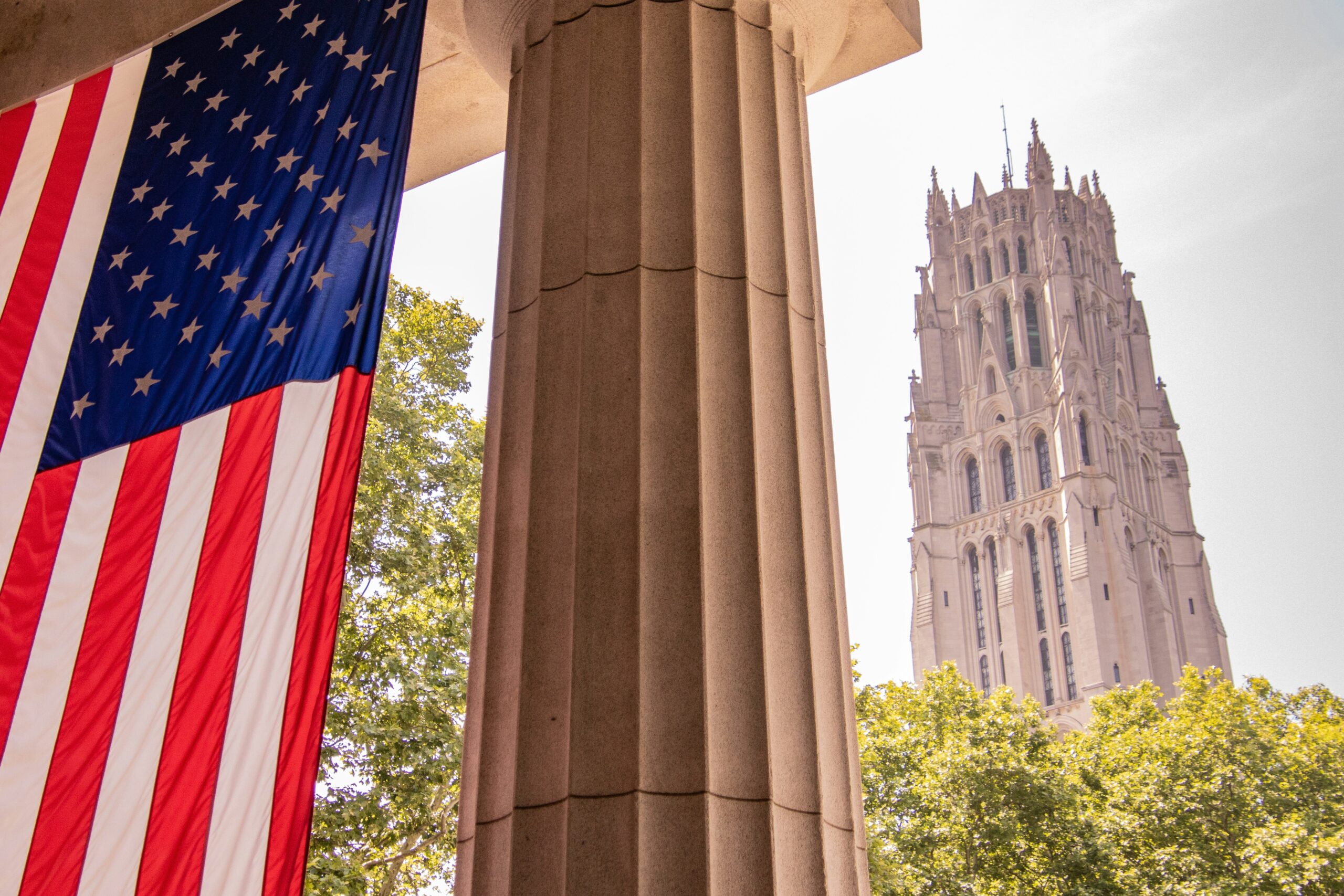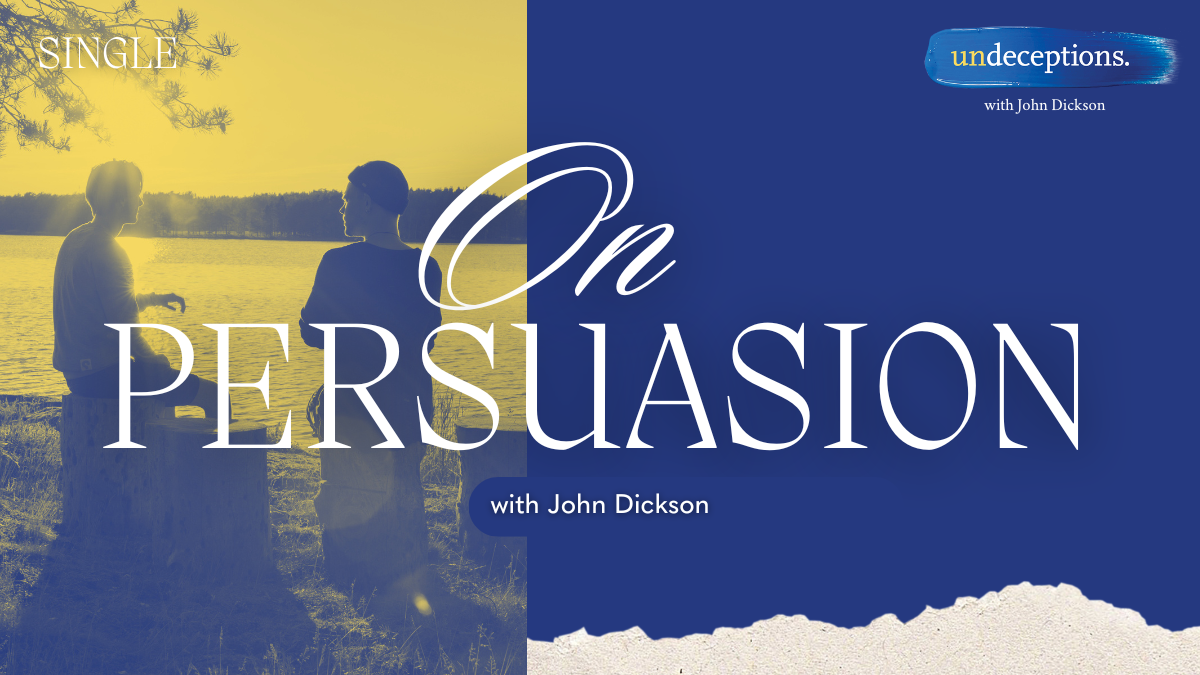Few movements are more influential across political and religious lines than the American Evangelical voting bloc.
Recent Pew Research found that 24 per cent of Americans identify as “born again or evangelical” – and while that may not sound like heaps, that’s 80 million people – three times the total population of Australia!
It’s not uncommon nowadays to see American evangelicals depicted as hyper-conservative, stuffy, white, Trump activists, prone to overlooking the moral failings of their leaders, and blindly raging against “wokery” and “liberals” in their midst.
In short – they’re angry, unloving versions of Ned Flanders
Sadly, this stereotype exists for a reason – and some experts reckon that to combat this, American evangelicals must deal with three pressing issues: power, morality, and Biblical literacy.
Before getting into that though – what is an evangelical? How might the American form of evangelicalism be distinct?
Christianity by Quadrilaterals
Dr Ed Stetzer, Dean of Talbot School of Theology at Biola University, points to a formula known as the “Bebbington Quadrilateral” to best describe what evangelicalism is.
“There are four things in the quadrilateral biblicism”, he said.
“Firstly a high view of the Bible, secondly the centrality of Jesus’ crucifixion on the cross, thirdly the belief that we are spiritually dead in our trespasses until we’re made alive in Christ – we call that being “born again” – and finally activism, and that activism can be through evangelism, or service, or different things.”
Evangelicalism has inspired Christians to do wonderful things throughout history – from starting hospitals to founding NGOs, and social enterprises, and just loving their neighbours in their community.
But how did American evangelicalism become so distinct?
Politics and Culture
Stetzer notes that a lot of the unique phenomena of American Evangelicalism are rooted in the dreaded“culture war” – an intellectual conflict that he believes evangelicals in countries like the UK and Australia are already past.
“There’s still a sense where evangelical Christians (in America) can and have exerted significant political influence, and allied with people to exert that significant political influence,” he said.
“When Christians have enough cultural influence to shape or redirect the narrative, they tend to use that, often in ways that are not so great, and I think, (Christians have) lost a lot of their witness with the politicisation of the faith.”

A political pundit dons a t-shirt mixing religion and politics. Photograph: Lynne Sladky / AP
These are strong words from a man who works in a predominantly conservative Christian sphere – but he’s not alone in this assessment.
Melissa Kruger, vice president of programming at The Gospel Coalition (a conservative Christian network of reformed churches, and online resources), identifies two big challenges facing evangelicals.
Firstly, there is their closeness to political power.
“When you only have two parties, it’s very easy to think ‘one kind of is right and one is wrong’”, she said.
“Because the evangelical movement has political power, it is courted by the two-party system.
“A political party might come in and say ‘this is the only, the only view a Christian can have’, and that’s something I’m very uncomfortable with.”
Another challenge Kruger identifies is a lack of intellectual nurturing – something she akins to “watered down coffee”.
“I see a huge problem: a lack of root”, she said.
“We have spread wide, but we haven’t always spread in truth, in the depth of what the scriptures teach.
“It’s like a weak strand of coffee, a very watered-down Christianity that I think you see a lot now, and that’s very confusing to people.”
The effects of this “watering down” are best seen in the third challenge identified facing evangelicals – holding leaders to moral account on basis of scriptural authority.
“Paul in his letters to the church, what did he say? He said, be on your guard, there will be wolves among you”, Kruger said.
“He said there will be sexual impropriety, there will be pride, and there will be greed – and sure enough, 2000 years later, we see that exact thing.”
It’s this lack of intellectual tradition – and moral discernment – that Stetzer believes might explain the unwavering support many evangelicals have for the controversial former US President Donald Trump.
“It bothers me and concerns me when I see the full-throated endorsement (of Trump)” Stetzer said.
“I think ultimately President Trump has shown himself to be a person who says some deeply wrong things … I can understand some evangelical Christians who might say ‘these were the choices that I had, and I made a difficult choice between these two’, but I’m concerned that people will change their view of morality to accommodate that.
“I am an outlier in this view … the vast majority of white evangelicals made a different decision than I did.”
An evangelical reckoning
Of course, there are many other challenges facing evangelicals in America.
Policy debates, issues with far-right affiliated conspiracy movements such as QAnon, and disunity are a few more of the many challenges facing Christians in the US today.
It’s possible to allow these challenges – and perceived failings of the church – to tarnish your view of Christianity as a whole.
But this should not be the case.
The fact is despite everything, at its best American Evangelicalism – more than many other Christian movements – is devoted to introducing people to the person of Jesus Christ as found in the Bible.
The biggest challenge facing all Christian groups around the world – those with political sway, and those who are downtrodden – is working out how to do this in a way that best imitates and represents their saviour.
Theirs no denying that when it comes to this part, some American evangelicals have a lot to answer for.
So, how can this vision of Christ-centred witnessing be recaptured across the evangelical – and especially the American evangelical – spectrum?
Ed Stetzer believes that it will require a “reckoning” – and while this might have beautiful results in the long run, there will be immediate, painful issues to address.
“We’re experiencing now what I call ‘The Great Sort’ in evangelicalism”, he said.
“All of a sudden there are conferences and churches that are very much decidedly in a lane that has been shaped in the last four, five, or six years, and there’s actually a growing division between evangelicals that hold of the authority of scripture, and are focused on personal conversion … I think right now we’re seeing a sorting in evangelicalism … and we have to address how some of these (political and cultural) things went too far.
“I think there needs to be a reckoning about the lack of discipleship that resulted in so many people being swept up, and I would say being swept away, by some of these cultural and political currents.
“I think we’re still walking through some of the consequences of that.”
Adapted by Alasdair Belling from the Undeceptions episode ‘American Evangelical’. Listen here


Want to be further undeceived?
Check out our network of podcasts and articles in the Undeceptions Library.














































